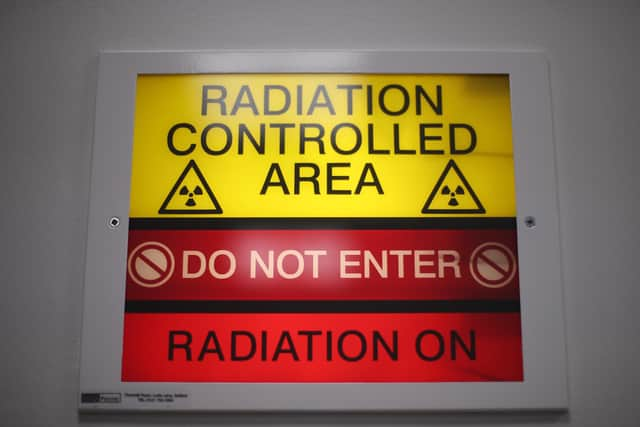Prolonged exposure to low-dose radiation may be harmful as Portsmouth academic analyses comments on new study
and live on Freeview channel 276
A recent study, commented on by an academic at the University of Portsmouth, has called into question what the “safe” levels of low-dose radiation are. Much of the work on radiation exposure and cancer risk has been informed by survivors of atomic bombs dropped in Japan at the end of the Second World War, they said.
This work helped to set the level of protection required for workers in nuclear industries or healthcare. The international team of researchers, including some from the UK Health Security Agency and the International Agency for Research on Cancer in France, analysed deaths among 309,932 workers in the nuclear industry in the UK, France and the US.
Advertisement
Hide AdAdvertisement
Hide Ad

The academics also had access to individual monitoring data for external exposure to ionising radiation. Between 1944 and 2016 more than 100,000 of these workers died, with 28,089 deaths from "solid" cancers - which include most cancers apart from leukaemia.
The study analysed the workers' risk of death from cancer alongside radiation exposure in the 10 years before their death. They estimated that this risk increased by 52 per cent for every unit of radiation (also known as Gray or Gy) workers had absorbed.
When the researchers specifically examined data on workers who had been exposed to the lowest cumulative doses of radiation (0-100 mGy - or milligray), this "approximately doubled" the risk of death from solid cancers per unit Gy absorbed. "People often assume that low dose rate exposures pose less carcinogenic hazard than the high dose rate exposures experienced by the Japanese atomic bomb survivors," the researchers wrote in The BMJ.
"Our study does not find evidence of reduced risk per unit dose for solid cancer among workers typically exposed to radiation at low dose rates." They added: "The study provides one of the most informative assessments to date on the magnitude of the radiation dose-solid cancer association in the low dose region, a key concern for contemporary radiation protection."
Advertisement
Hide AdAdvertisement
Hide AdThe authors said they hope organisations such as the International Commission on Radiological Protection will use their results to inform their assessment of the risks of low dose, and low dose rate, radiation exposure.
Commenting on the study, Jim Smith, professor of environmental science at the University of Portsmouth, said: "This paper is a major update on an important study of cancer risk in over 300,000 nuclear industry workers in three different countries.
"The estimate of cancer risk from a particular dose of radiation is primarily (but not wholly) based on the long-term study of the Hiroshima and Nagasaki atomic bomb survivors. Survivors of the atomic bombs received what is called an acute dose of high energy radiation - they received most of their radiation dose within the first second of the bomb explosions.
"There has, for a long time, been a question about how to use data from these acute exposures to estimate cancer risk in people exposed to lower doses over a long period of time such as those from natural sources of radiation, or radiation in the workplace - so called 'chronic' low dose radiation. The evidence from this important study gives strong support to evidence built up in recent decades that, in fact, chronic long-term dose rates are likely to be just as damaging in terms of cancer risk as acute ones, per amount of radiation absorbed in the body.
Advertisement
Hide AdAdvertisement
Hide Ad"It is important to note that although this study gives strong evidence for an increased cancer risk from radiation in the workplace, absolute risks to radiation workers are low in comparison to other factors important for health (for example whether a person smokes, whether they have a healthy diet, body mass index, exercise etc). Radiation doses to nuclear industry workers are currently on average very low."